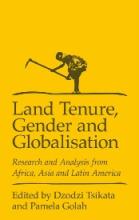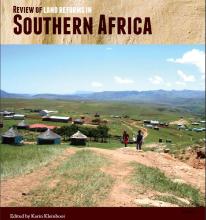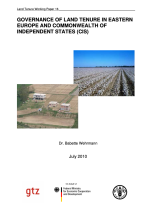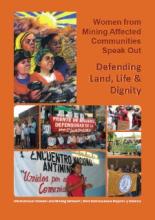Land Library
Welcome to the Land Portal Library. Explore our vast collection of open-access resources (over 74,000) including reports, journal articles, research papers, peer-reviewed publications, legal documents, videos and much more.
/ library resources
Showing items 1 through 9 of 3105.Drawing from field research in Cameroon, Ghana, Viet Nam, and the Amazon forests of Brazil, Bolivia, and Peru, this book explores the relationship between gender and land, revealing the workings of global capital and of people’s response
Objectives of the study were to assess the evidence of climate change and the additional likely changes in the climate up to 2050. Further the recent changes in land use and their major drivers have been addessed.
This book forms part of a learning programme on ‘Land Reform From Below: Decentralised Land Reform in Southern Africa’.
This paper seeks to add to the growing literature on land concessions by examining a recent, high-level concession as a means of understanding three aspects related to concessionary investments: (1) the process by which concessions are awarded and implemented; (2) the intricate relationship betwe
This document, available in French, English, Spanish and Portuguese http://www.agter.asso.fr/article480_en.html, considers the meaning of ‘investment’ and the types of investment the world needs to achieve food security and protect the env
Most ethnic minorities in Vietnam such as the Vietnamese-Thai, Tay, Nung, Hmong, Muong and Dao have a special relationship with the land, elements and other living creatures.
The present study – looking at the land governance situation in Eastern Europe and the Commonwealth of Independent States (CIS) – has been prepared to provide a base for discussion for the regional consultation meetings on the FAO Voluntary Guidelines on Responsible Governance of Tenure of Land a
This International Women and Mining Network - RIMM's publication is one step towards building an awareness of the challenges and struggles experienced by women in particular places where companies are extracting wealth from the depths of the earth.
Processing of highly perishable non-storable crops, such as tomato, is typically promoted for two reasons: as a way of absorbing excess supply, particularly during gluts that result from predominantly rainfed cultivation; and to enhance the value chain through a value-added process.









